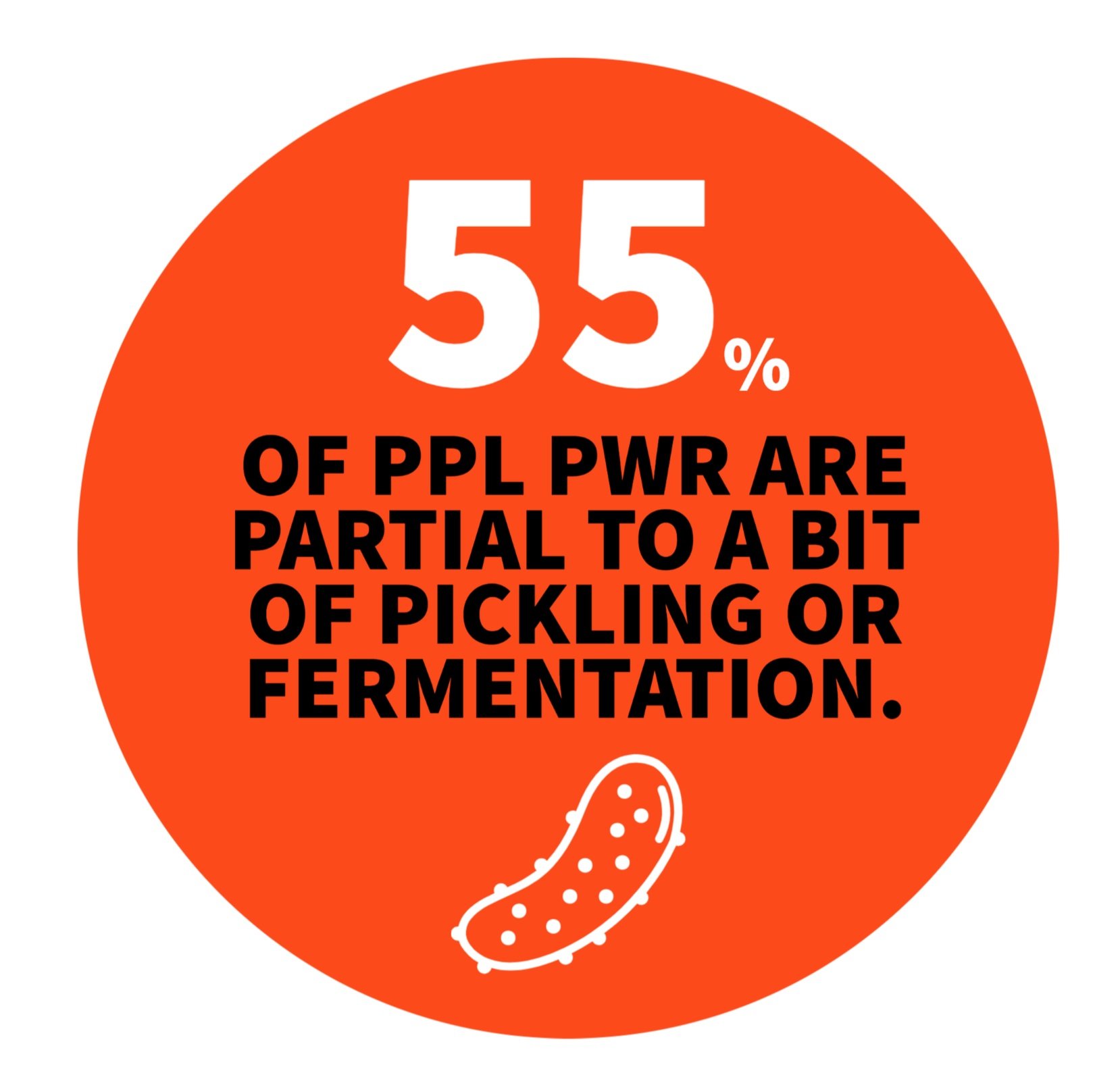How to Fight Food Waste: Four Fast Tips for Becoming a Frugal Foodie
At PPL PWR, we believe that doing your bit to save the planet shouldn’t cost you the earth. In fact, when it comes to sustainable living, less is often more.
Introducing Green Voices, Smart Choices, PPL PWR’s new four-part blog series on how to sustain the ability to practise everyday sustainability.
One year on
Last November marked the one year anniversary of the Pupil Power Roadshow, a collaboration between PPL PWR and over 40 students from the UK School Sustainability Network (UKSSN), who joined forces to form a youth hub at COP26. After receiving training, the young climate activists organised a panel discussion on sustainable finance, held a tech demo on hydrogen fuel cells, and produced a short documentary on the mental health benefits of green spaces.
One year on from COP26, as we usher in the new year, we asked the PPL PWR community how they practise everyday sustainability across the four categories of food, water, shopping, and lifestyle.
Get ready to set the table, because this week’s topic is about to be served.
‘There is food for everyone on this planet, but not everyone eats.’
- Carlo Petrini
What’s the fuss?
From farm to fork, food waste has become something of a political hot potato in environmental conversations on the relationship between sustainable development and food security. Research suggests that if food waste were represented as a nation, it would be the third largest greenhouse gas emitter, surpassed only by China and the United States. The foodprint of our daily nutritional intake includes the carbon released at each stage of the supply chain from growing, processing, and packaging through to distribution, consumption, and disposal.
Source: CAIT. 2015; FAO. 2015. Food Wastage Footprint & Climate Change. Rome: FAO.
In developed countries, the majority of food waste can be attributed to oversights at the consumer level. Whether it be the inefficient use of scraps and offcuts, incorrect food storage and preparation techniques, the mistaken belief that an item has spoiled, or simply the failure to remember to eat an item before it perishes, we are feeding into a throwaway society that normalises having your cake and not eating it. If we as consumers bear the lion’s share of responsibility for the scourge of food waste, then why are we not buying into a sustainable lifestyle change that will help us economise while simultaneously saving time, farmland, and fuel?
Studies into the root cause of household food waste found that the real culprit is human folly: impulse buys, half-baked culinary plans that are never quite executed, and the misinterpretation of food safety terms. Those who confuse the ‘sell-by’, ‘best before’, and ‘use-by’ dates overestimate the extent to which the first two criteria affect a product’s edibility. The sell-by date is a guideline that recommends to retailers when an item should be sold before shelves are expected to be replenished by new stock, while the best before date indicates when the item is at its optimal quality, but neither imply that the product will be unsafe to eat after the printed date. Instead, take food labels with a pinch of salt and trust your senses with a sure-fire sniff or taste test.
Chew over the following four tips on how to put your best foot forward when shrinking your foodprint:
1. Can you cure food waste? Yes, you can!
A 2019 survey conducted by the Waste and Resources Action Programme (WRAP) revealed that in the UK, 6.6 million tonnes of food are disposed of every year, 70% of which is thrown out by households, and 4.5 million tonnes of which are still edible. WRAP discovered that the leading cause of domestic food waste is that food is not being consumed before it has passed its expiry date. Fortunately for all the amateur cooks out there, food preservation is as easy as pie.
One of the most common methods of extending the shelf life of perishable goods is to simply freeze them—it won’t earn you any Michelin stars, but it will halt the growth of mould and bacteria on your food. Consider replacing your plastic ziplock bags with a silicone alternative. Not only are silicone resealables robust, reusable, and resistant to leaks, but they’re also fit with an airtight seal that will keep food fresher in higher temperatures than food-grade plastic can withstand.
Freezing may be familiar to the uninitiated, but it’s just the tip of the iceberg. If you’re feeling a little more adventurous, pickling is the perfect remedy for mealtime monotony. Without getting in a pickle over the science behind the solution, in simple terms, the pickling process involves immersing foods in an acidic solution of either vinegar or brine, leaving your pickled produce with a deliciously tangy taste you can relish for months. Whether you fancy jazzing up a jalapeno or spicing up some snap peas, the versatility of pickling appeals to even the pickiest of eaters.
The most successful pickling ventures start with the staple of every zero-waste kitchen, a multipurpose Mason jar. Contrary to popular belief, it's perfectly safe to store fridge and freezer foods in Mason jars, so long as the glass is tempered. A couple of house rules: if you’re storing liquid, allow it to cool before pouring it into the jar, and leave at least an inch of space between the top of the jar and its contents to prevent the glass from shattering when the frozen liquid expands. If cracks do begin to appear though, don’t shoot the Mason jar.
Ready for seconds? Whet your appetite with another helping of food preservation hacks from the Attainable Sustainable blog.
2. Popping to the shops? Try wonky crops!
The UK retail sector is responsible for 260,000 tonnes of food waste each year, a large proportion of which is unnecessarily discarded due to quixotic industry standards that value cosmetics over consumability. Martha from PPL PWR orders groceries from Oddbox, a food subscription box that goes against the grain by delivering fresh produce at risk of being thrown out by retailers due to its perceived lack of aesthetic appeal. That should provide some food for thought.
The rigorous vetting procedure imposed on produce writes off misshapen, discoloured, and superficially bruised foodstuff before it has so much as been given the chance to grace our supermarket shelves. With food surplus translating into food waste, it’s high time we stopped eating with our eyes and started feeding our minds. While farmers often find themselves at the bidding of chain stores, the rise of the eco-conscious consumer has brought about burgeoning reforms. Look out for your local supermarket’s wonky food range, and embrace the unique imperfections of fresh fruit and veg by valuing taste over waste.
3. Cut your loss, lower the cost, compost!
There’s no shortage of trash talk on the topic of composting. A common misconception is that a sizable garden and state-of-the-art technology are required for a thriving compost heap. However, if you’re working with a modest amount of open space, a stainless-steel compost pail situated in a well-drained location with moderate sunlight and moisture is a practical and odourless solution that will allow you to convert organic matter into nutrient-rich humus to help fertilise your soil.
If you don’t have access to a small plot of land, a vermicomposter, technical jargon for what is essentially a worm composting bin, will also do the trick. Although the idea of worm farming may seem daunting to some, don’t refuse the idea just yet. The flexibility of a worm bin means that it can operate indoors, ideally in a cupboard under the sink, a garage, or a basement. A vermicomposter will convert green and brown waste into the holy grail of horticulture, worm castings, or in crude terms, earthworm poop.
It’s only natural to turn your nose up at manure, but when a composting system is in healthy balance, a pleasantly earthy smell can be expected. Consider the benefits of diverting waste disposal from landfill sites while boosting germination with vermicast that retains water, suppresses pathogens, and remediates polluted soil. What better way to tackle global warming than through global worming?
4. Savour the flavour with the fruits of your labour!
They say going green helps you find inner peas. Anna from PPL PWR shares her experience of harvesting crops in the communal gardens outside her flat. ‘I strongly urge beginners to grow strawberries, French beans, or runner beans.’ Strawberries are remarkably adaptable fruits that thrive in a host of different locations, from planters and window boxes to hanging baskets and growing bags.
Whether you have an orchard on an acre of land or a terracotta pot on an apartment balcony, obtaining a successful yield is possible provided that you plant the strawberry variety appropriate to your climate. Unlike June-bearing strawberries, everbearing and day-neutral strawberries exhibit signs of dieback in high heat and produce smaller berries, making them suitable for temperate environments and tighter spaces.
French beans and runner beans, available as either dwarf plants or climbing plants that can be sown both indoors and outdoors, are convenient for those of us who are greenhorns at being green-fingered. Note that as tender plants, French beans and runner beans are not frost-hardy, and therefore should be covered with a cloche if sown outdoors in late autumn or winter. ‘Make sure to give plants something to grip to, particularly with peas,’ recommends Anna. Searching for stakes to support your plants? Want to avoid being bamboozled? Look no further than these sturdy and carbon-sequestering bamboo canes.
Final thoughts
The bread and butter of household food waste reduction is to ramp up awareness of the environmental impact of our grocery lists, cooking customs, and domestic waste output. By exercising caution in the kitchen and being a tad more experimental in our culinary pursuits, we can improve the food literacy of the general public and create a more sustainable food system. Facilitating a greater understanding of how to make informed choices about growing, purchasing, storing, preparing, and preserving our sustenance will provide us with the necessary resources to dial down any unnecessary food disposal. In a nutshell, waste not, want not.







